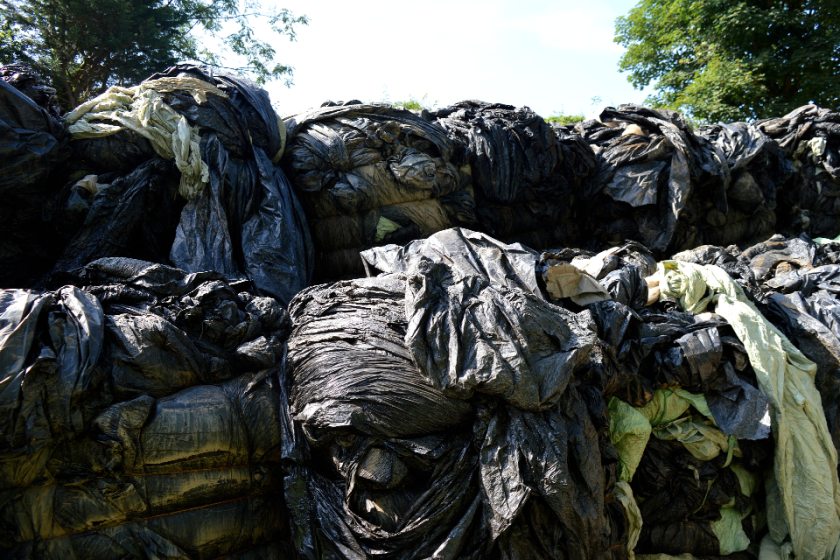
Farmers have been told to check their waste management processes after a rise in contaminated agricultural plastic waste being intercepted at shipping ports, bound for illegal export.
This year numerous illegal shipments have been intercepted, including silage wrap, which were destined for countries around the world.
In order to legally export contaminated agricultural plastic waste including silage wrap, prior consent is required from both the source country and its destination, alongside all countries through which it travels, according to the Environment Agency.
The waste cannot be exported unless the permission of the agency and applicable overseas authorities has been obtained in advance.
Malcolm Lythgo, head of waste regulation at the EA, said farmers and agricultural businesses had a 'legal duty of care' to conduct checks on those who collect their waste.
“We know that farmers care deeply about the environment and don’t want to see their waste being illegally exported, but we are stopping an increasing amount of contaminated agricultural plastic waste.
"Anyone involved in its illegal export, from the producer to the exporter, is liable and could face severe penalties,” Mr Lythgo said.
To ensure that waste is handled properly through to its final recovery or disposal point, farmers have been told to ask where the waste is going, and to ensure it is accurately described on transfer documentation.
To disrupt the illegal trade, the Environment Agency visits sites and intercepts those who misdescribe waste as suitable for export without the necessary permissions, as well as targeting illegal shipments at ports.
The agency also targets those who fraudulently claim packaging export recovery notes against non-packaging material including silage wrap.
What steps should I take?
To ensure that waste is handled properly through to its final recovery or disposal point, farmers and agricultural businesses have been told by the EA to:
• Use the EA website to check that the waste firms they are dealing with have the necessary authorisations for carrying, dealing or brokering waste
• Ensure the waste is accurately described on waste transfer documentation
• Ask where the waste is going
• Ask for evidence that the waste company is authorised to store or treat it and what they intend to do with the waste afterwards
